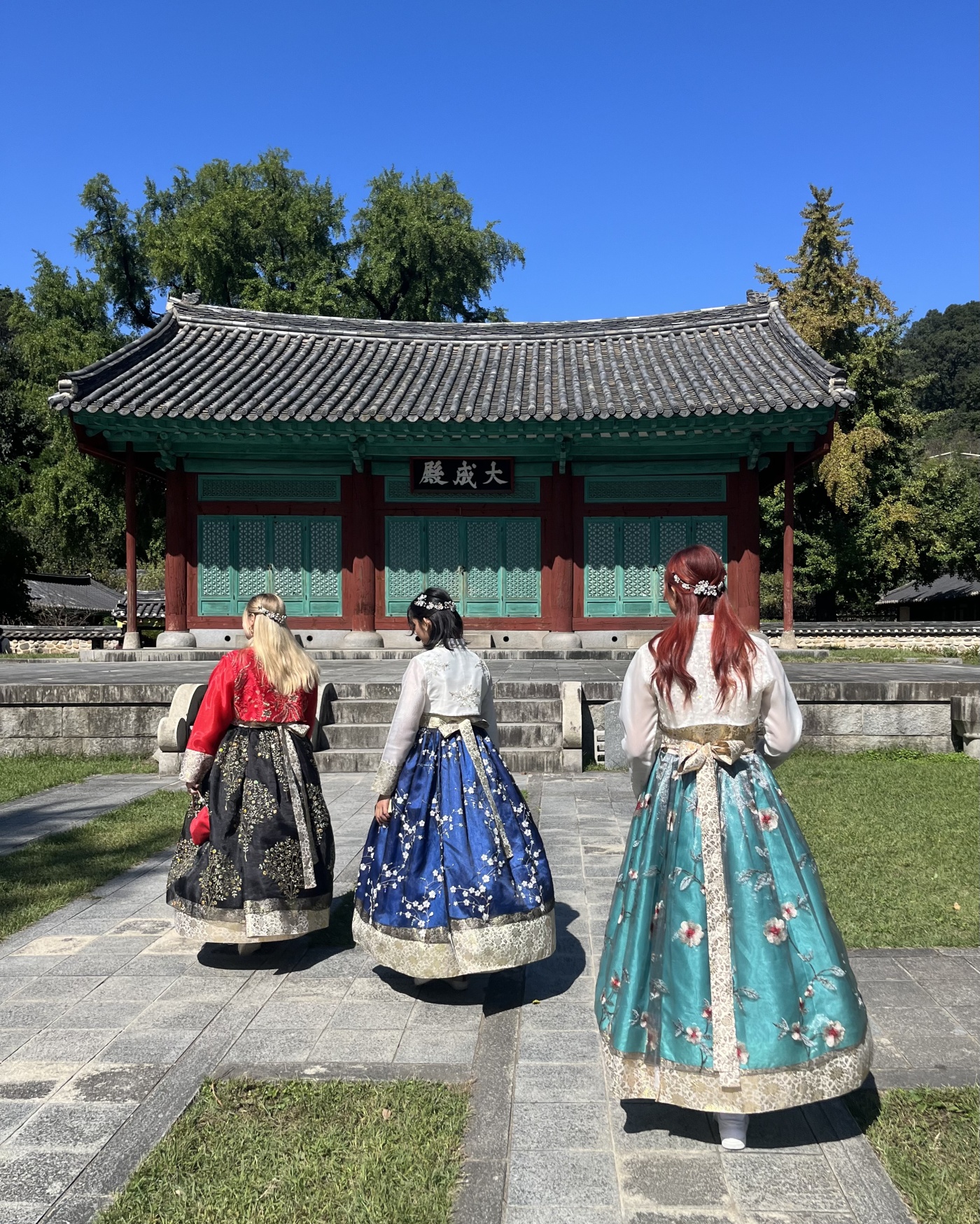Apart from the beauty of restored and picturesque temples and fortresses, lush green mountains covered in trees that I could not wait for autumn to turn into the colors of sunset, and the calm ocean surrounding the Korean Peninsula, my fascination for the east-Asian country had especially been driven by my curiosity about its people’s culture and traditions. My inconsistent binge-watching of modern K-Dramas (Drama series made in Korea, with the classic and overused “rich chaebol-heir falls in love with the poor girl leading to family drama” trope) had given me a glimpse of Korean culture and practices. And although it certainly increased my fascination and eagerness for Korea to be the destination of my exchange semester experience, until my arrival in Seoul, I remained oblivious to the historical events and hardships that had formed those practices that I had ever been so curious about.
The devastating Japanese occupation, among other terrible things the Korean Nation had to endure, is ever-present on tables and inscriptions found on historic sites. But still, I am very glad about my decision to attend a class at my host university that taught us interested, foreign students about Korean culture, history, and society from a real, non-romanticized view. A perception which was usually clouded by media products like the above-mentioned K-Dramas, and the provided mass of entertainment like drone shows, light and firework festivals, free concerts and so on, some of which even took place on the university campus itself. I had known and wondered about the hierarchy-dependent practices and strict obeying of filial piety to the elderly and one’s ancestors, something rather exotic in its extent for me and my own, Western culture. Confucianism had been a nearly new concept to me, although my so-beloved K-Series had introduced me to practices like handing cash and credit cards over with two hands, bowing to greet, thank, or apologize, and pouring drinks for the oldest person first as a form of respect. Ultimately, it was the class I attended that made me understand the reasons for the Koreans’ strict obedience to those unaccustomed practices that I now experienced myself in everyday interactions. Learning more about the times of oppression, hunger, and economic difficulty before the almost explosive, incredibly fast-paced development only 5 decades ago gave me a clearer understanding of the “spiritual” importance of honoring past and older generations. After four incredibly exciting and enriching months in Korea, daily trips to pyeon-ui-jeom (convenience stores), many delicious meals at Gwangjang food market, drinks with slightly older friends at a pocha (simple bars where you can also enjoy various foods), and encounters with halmeonis (Grandmas), those once so-foreign practices had become ingrained into my mannerism.
On my following travels, I found myself bowing to the Western flight attendant when I disembarked my plane in Singapore, handing bills with two hands to a confused cashier in Sydney, and now I continue to hold my elbow when pouring water for my parents. At the beginning of my exchange, I had been a bit bothered by the strict, hierarchical rules in contradiction to the more relaxed practices of only two common honorifics that I am used to (as opposed to the 6 Korean ones, excluding the one only used for royalty). But now I find myself contemplating these deeply entrenched signs of respect. Not only have I learned to understand, but also to appreciate them. However, the strictness and perseverance of the Confucianist practice remain debated regarding the negative impact of their implementation and connection to their toxic obsession with hierarchies. It is indeed a nice gesture to thank the generations before oneself for their sacrifices and hardships, for we now have opportunities like a semester abroad to enrich our horizons and learn about cultural practices on the other side of the world. After all, although I had enjoyed impressing my new Korean friends with my adapted mannerisms in the hope of paying respect to Korean culture, it had been the elderly’s joy who showed me their gratitude for that small gesture of “cultural appreciation”. A personal highlight was spending chuseok (Korean Thanksgiving) in hanbok, the traditional Korean dress. The smiles and affirmative nods that especially senior locals gave us proved to me once more, that different cultures are best enjoyed when respected, shared, and appreciated.
-Sydney Frei

Leave a comment